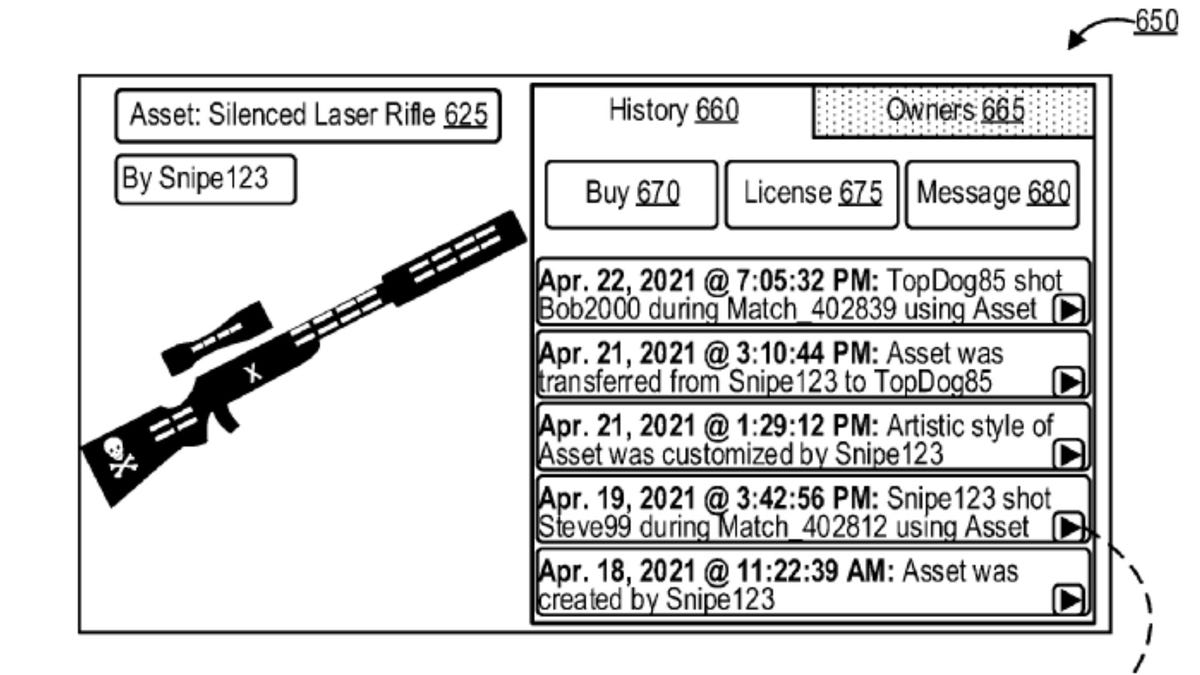I look forward to the day when my brain doesn’t have to think about terms like “distributed ledger,” “fungible,” or “jtoken” anymore. But if recent Sony patents are anything to go by, we may not be out of the NFT woods yet (if there are still woods left when crypto burns the planet down). While the broader world of crypto is crashing like the Hindenburg, Sony is still eyeing video-game-focused NFT technology for in-game collectibles. Thrilling.
Spotted by Video Games Chronicle and Gamesual yesterday, a Sony patent from last year, though published recently, charts out the company’s interest in technology that would “[convert] the digital assets associated with video games from being fungible to being non-fungible” and in systems that would “create and manage such digital assets, by tracking a history of the digital assets.” The patent identifies these digital assets as “in-game items or characters” or “video game digital media assets representing moments of gameplay of a video game, such as video clips or images.” Another term for that is bullshi—NFTs.
These concepts aren’t new. Sony’s patent sounds much like what other entertainment companies, including video game companies, have been trying to make work ever since we were cursed with knowing what the hell an NFT even is (please, please don’t email me reiterating what they are and why I just don’t understand it, man).
The patent references baseball collectibles (a common enough analogy for NFTs and unique digital collectibles) as proof that people like to collect memorable items, and then speculates that there is a need for digital assets to emulate the scarcity of physical resources like “baseballs autographed by [Babe] Ruth, baseballs hit by Ruth in an important baseball game, trading cards depicting Ruth, and the like.”
Though it doesn’t name any popular streamers or pro gamers, the patent speculates that such celebrities could have their own versions of a Babe Ruth-struck baseball via NFT technology. Right now the lack of scarcity in digital worlds means there is currently “no way to know, track, or authenticate a history of a particular instance of an in-game item.” This patent speculates a way of changing that inherent nature of digital “goods.”
Generation 9
Embark on a new Pokémon adventure in an open-world setting with starters Sprigatito, Fuecoco, and Quaxly.
So, y’know, in Sony’s future you could spend a fortune on a skin Ninja used on a gun in a tournament. Isn’t the future amazing? If only Sony had some kind of program of cataloging and distributing digital rewards and collectibles. Oh, wait.
If this all sounds like a solution in search of a problem, well, that’s because it is.

